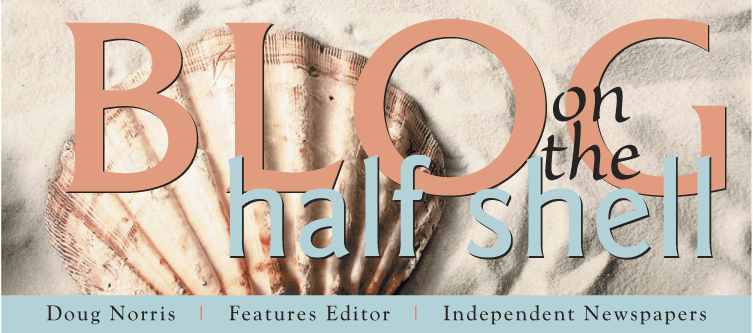A few years back I welcomed new neighbors with a harvest basket filled with a cornucopia of gifts and a card that read, “You’ve been turkeyed.” On the heels of a previously anonymous Halloween candy-and-art-supply “You’ve been ghosted” delivery to the doorstep, the secret grab bag of Thanksgiving kitsch became part of a new tradition, with variants (“You’ve been shamrocked” on Saint Patrick’s Day; “You’ve been egged” at Easter) keeping the mystery going all year long.
(Not all of the skulking was successful. A late-night egg planting one Easter went horribly wrong once when children opened their plastic eggs the next morning in the living room, only to see grubby, slimy, early-rising insects crawl out. They had been attracted by the jellybeans inside. On the plus side, according to their parents, the negative reinforcement seemed to curb the kids’ appetite for candy that year.)
The gist of the Thanksgiving ritual involved a visit from the great gobbler, Tom Booghalamoon.* Inspired by my own childhood readings of the Great Pumpkin, whom Linus waits for unfailingly to visit every year in “Peanuts,” Tom Booghalamoon – also known as Tom B. Turkey – is a giant flying Narragansett turkey that wears a pilgrim’s hat and rides a broom. Just as Santa Claus brings gifts to children everywhere on Christmas Eve, Tom Turkey welcomes anyone who has moved into a new neighborhood since the previous Thanksgiving with gifts of hearth and harvest. With his faithful Turkey Boys and Turkey Girls, urchins that have a home in a corn maze the size of Rhode Island, at a latitude and longitude that doesn’t appear to exist on any known map, Tom brings good cheer to those who are leaving something behind but are also looking forward to whatever might be ahead.
What is your favorite Thanksgiving Day ritual?
· Linguists may recognize Booghalamoon as Persian for “wild turkey.” Other foreign names include: “Chilmyeonjo,” Korean for “seven-faced bird”; “dik rumi,” Arabic for “Roman rooster” or “Ethiopian bird”; “huoji,” a Chinese word meaning “fire chicken” (other Chinese words include “tujinji” or “cough up a brocade chicken” or “tushouji” or “cough up a ribbon chicken”); “la dinde” in France, which is derived from “(poulet) d’Inde” or “(chicken) from India”; “(der) Truthahn” in German; “gallopoula” in Greek, meaning “French chicken”; “Peru,” in Portuguese, which is also their name for the country “Peru”; “bata mzinga” in Swahili, meaning “the great duck”; and “feel murgh” in Urdu, meaning “elephant chicken.” (Source: Wikipedia.)
Monday, November 21, 2011
Subscribe to:
Post Comments (Atom)


No comments:
Post a Comment